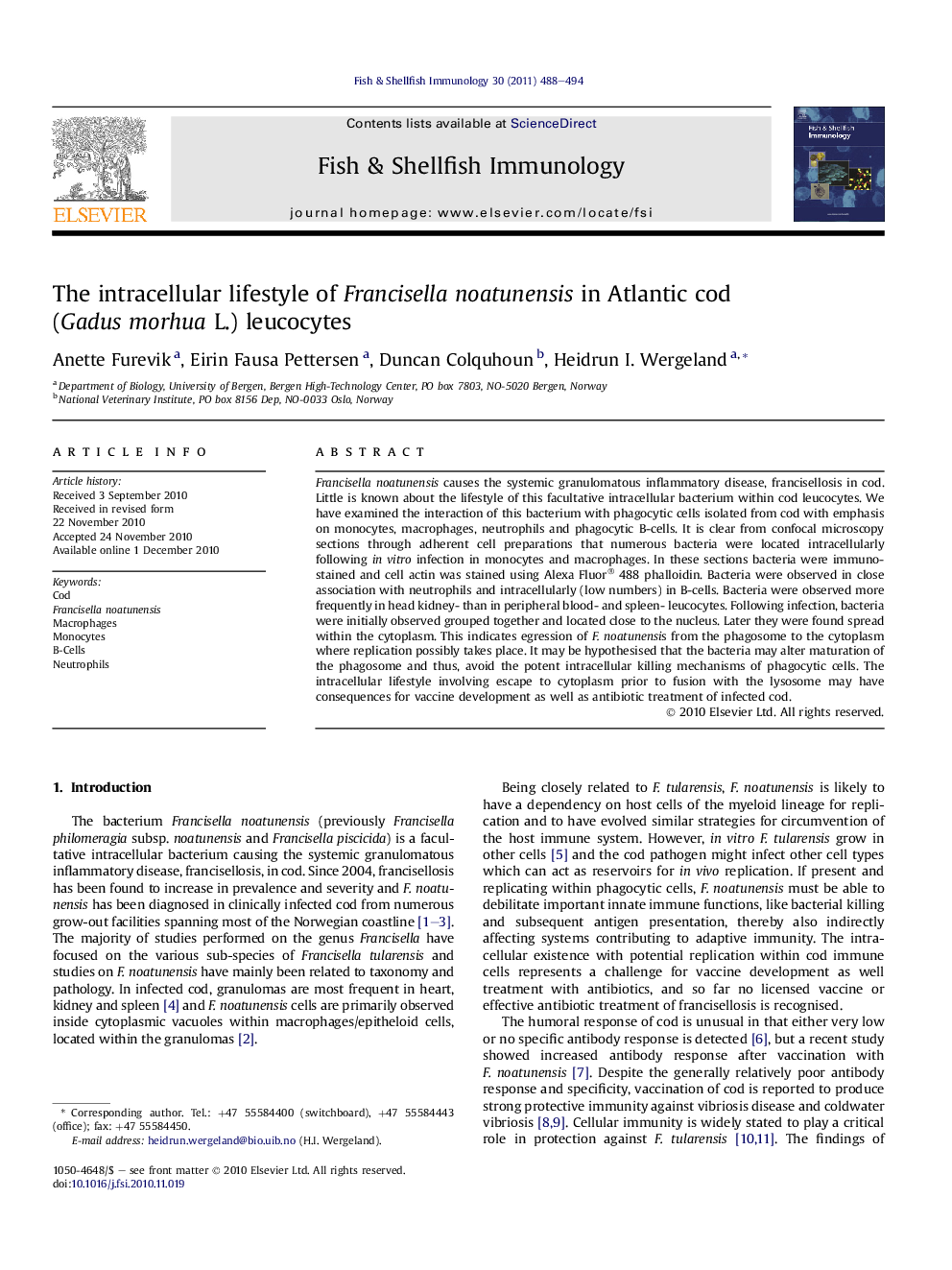| Article ID | Journal | Published Year | Pages | File Type |
|---|---|---|---|---|
| 2432476 | Fish & Shellfish Immunology | 2011 | 7 Pages |
Francisella noatunensis causes the systemic granulomatous inflammatory disease, francisellosis in cod. Little is known about the lifestyle of this facultative intracellular bacterium within cod leucocytes. We have examined the interaction of this bacterium with phagocytic cells isolated from cod with emphasis on monocytes, macrophages, neutrophils and phagocytic B-cells. It is clear from confocal microscopy sections through adherent cell preparations that numerous bacteria were located intracellularly following in vitro infection in monocytes and macrophages. In these sections bacteria were immunostained and cell actin was stained using Alexa Fluor® 488 phalloidin. Bacteria were observed in close association with neutrophils and intracellularly (low numbers) in B-cells. Bacteria were observed more frequently in head kidney- than in peripheral blood- and spleen- leucocytes. Following infection, bacteria were initially observed grouped together and located close to the nucleus. Later they were found spread within the cytoplasm. This indicates egression of F. noatunensis from the phagosome to the cytoplasm where replication possibly takes place. It may be hypothesised that the bacteria may alter maturation of the phagosome and thus, avoid the potent intracellular killing mechanisms of phagocytic cells. The intracellular lifestyle involving escape to cytoplasm prior to fusion with the lysosome may have consequences for vaccine development as well as antibiotic treatment of infected cod.
